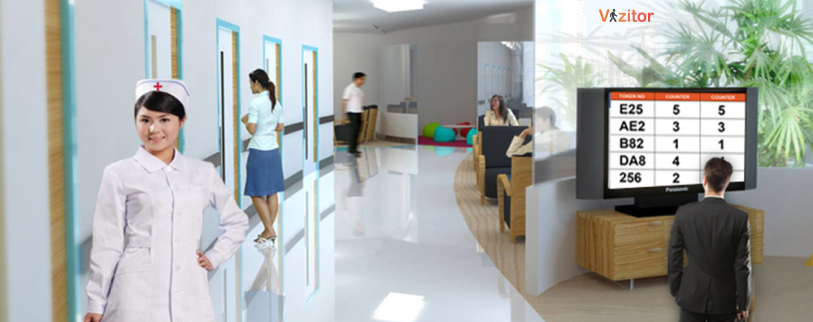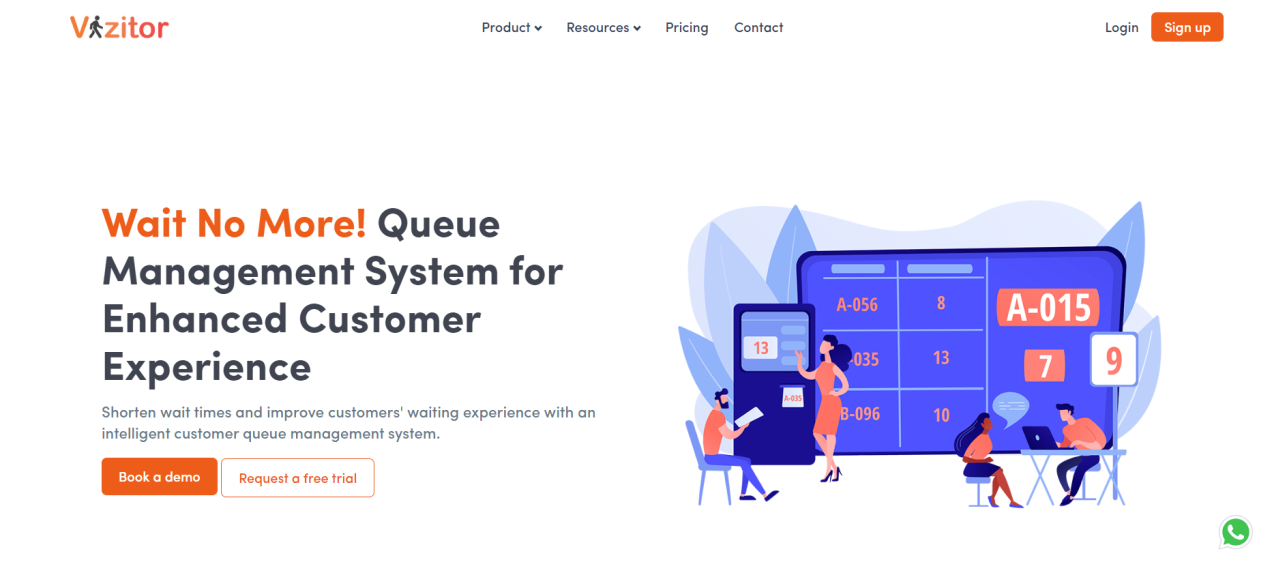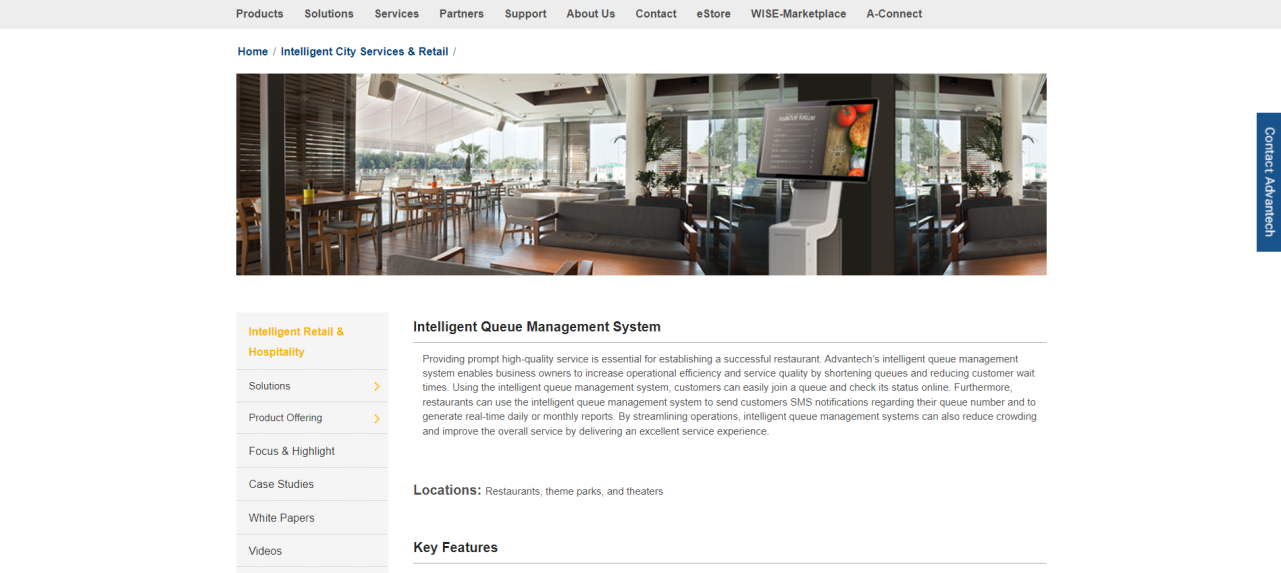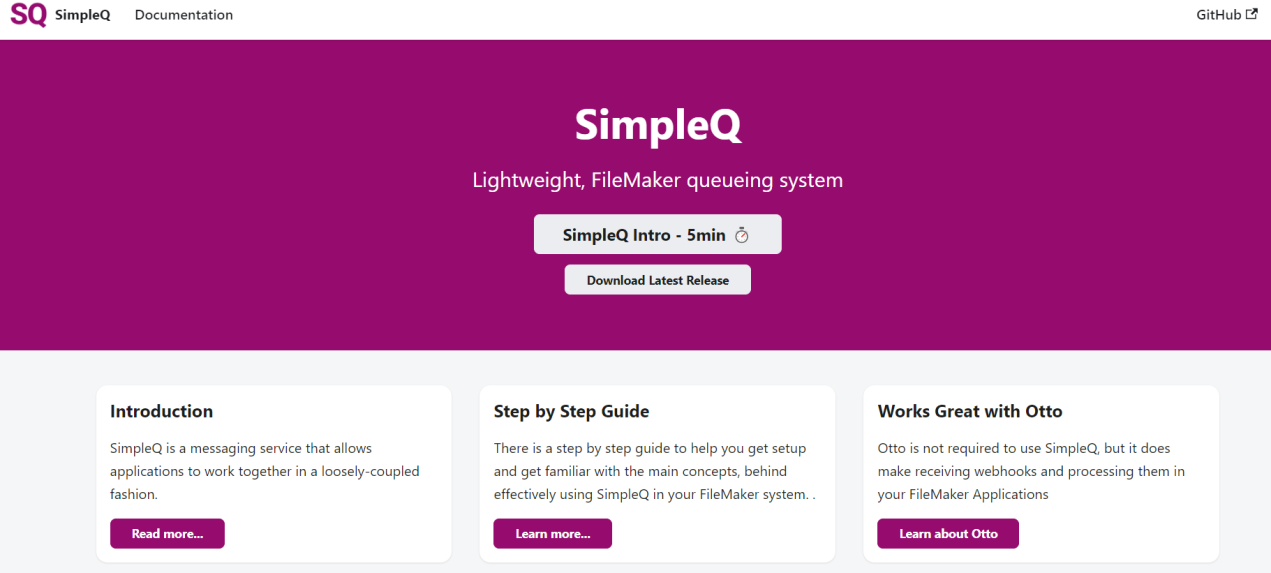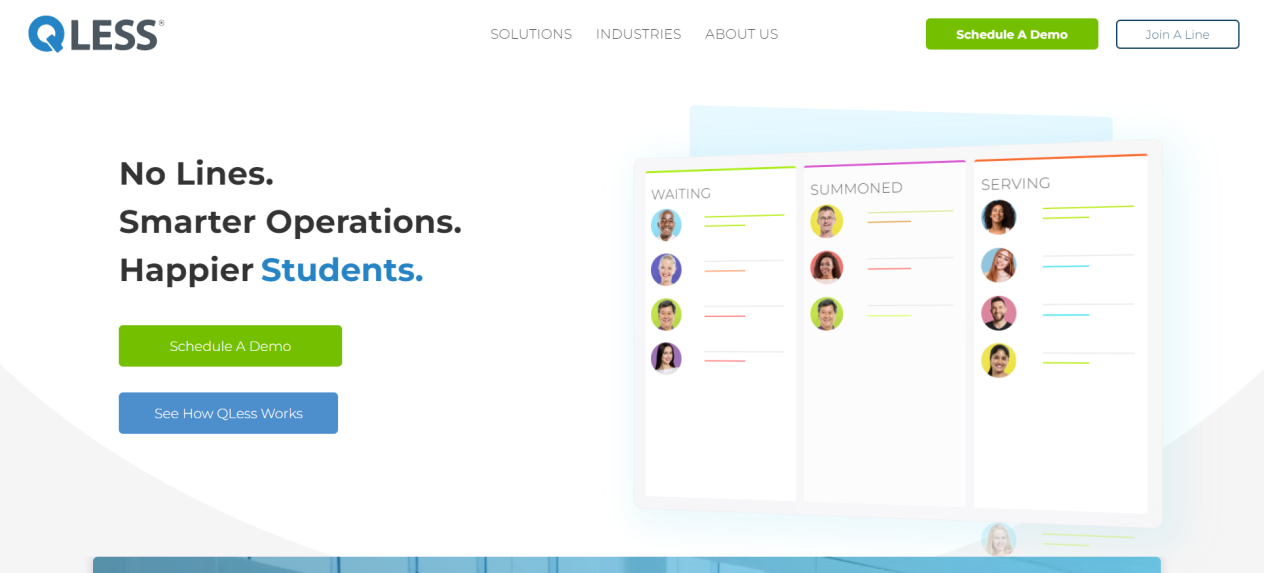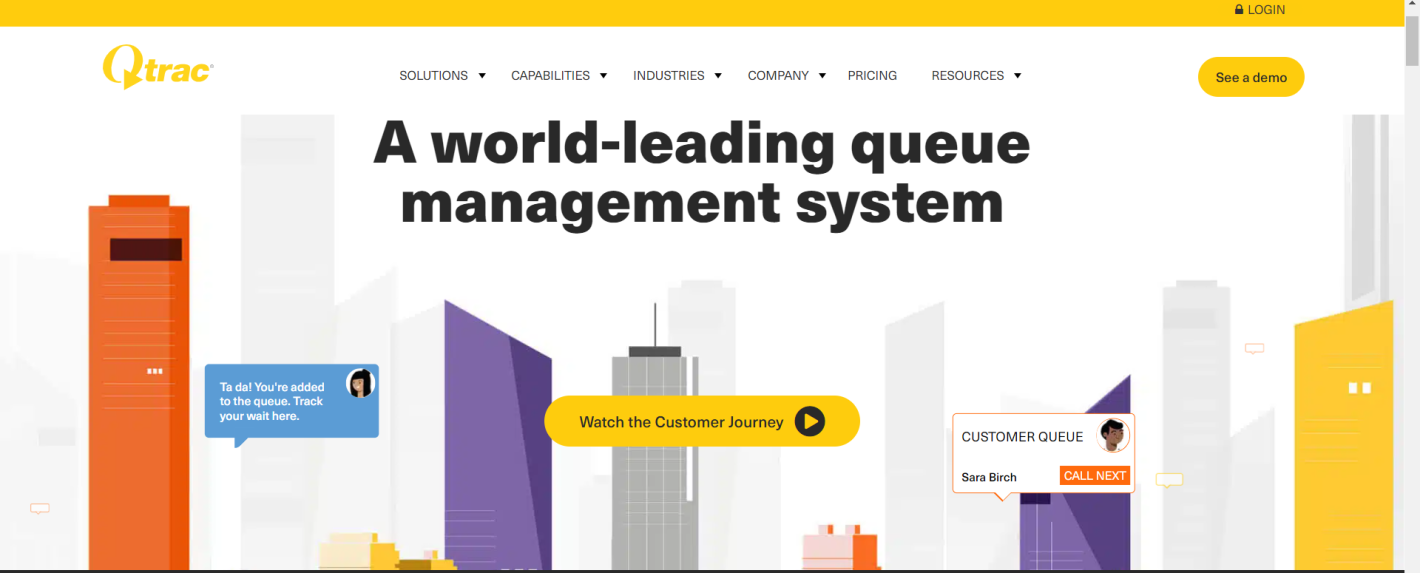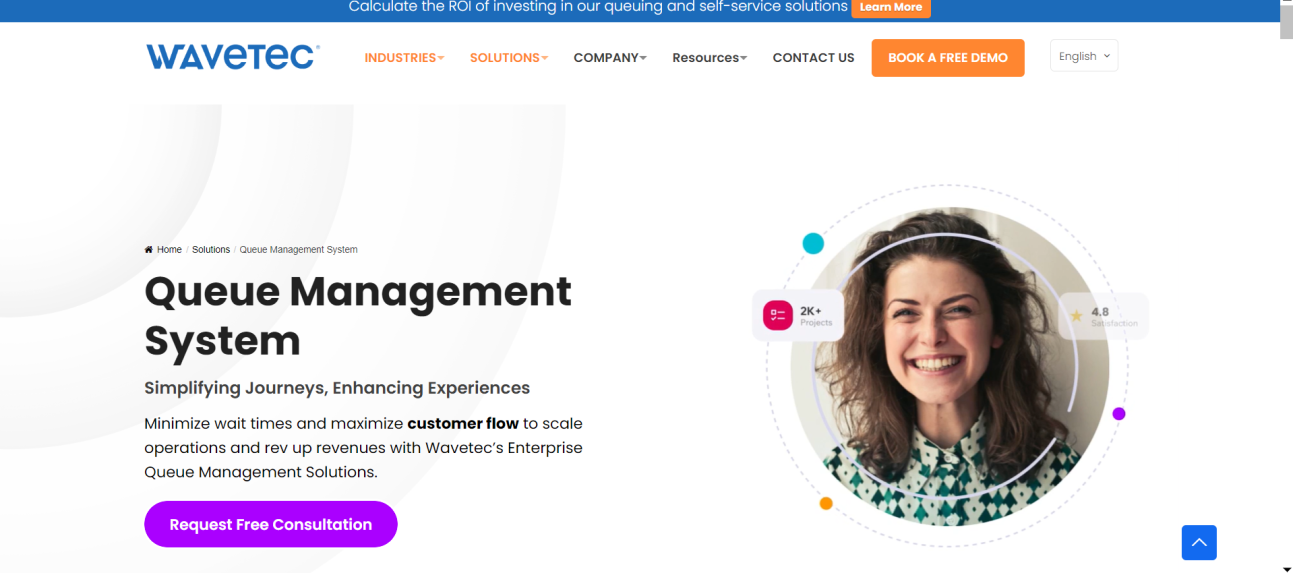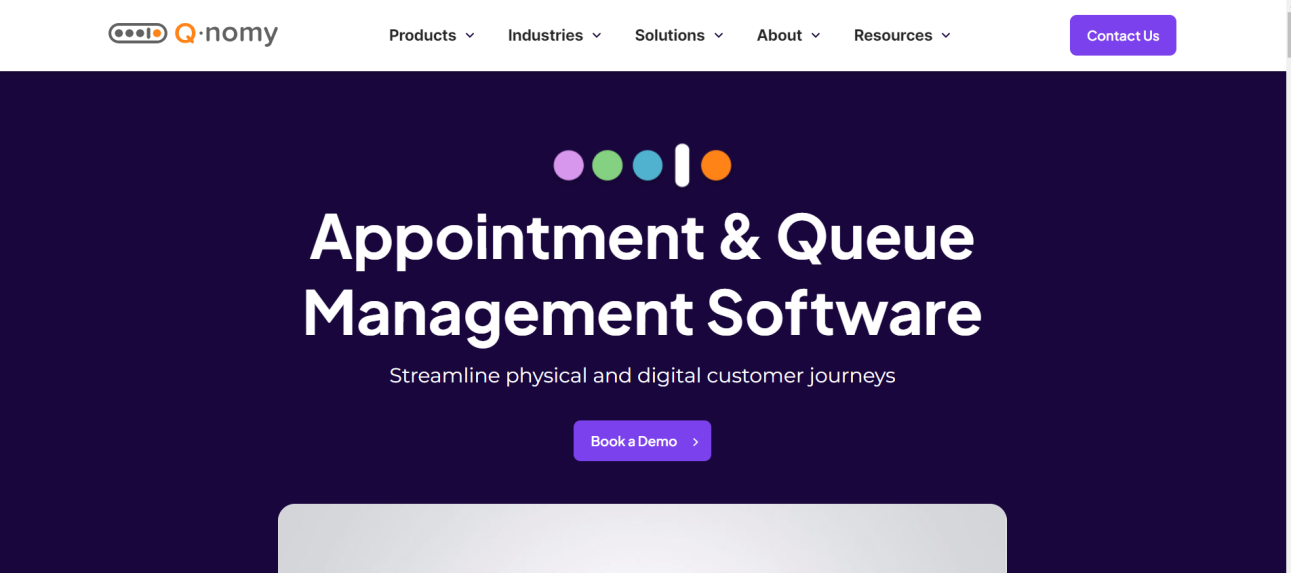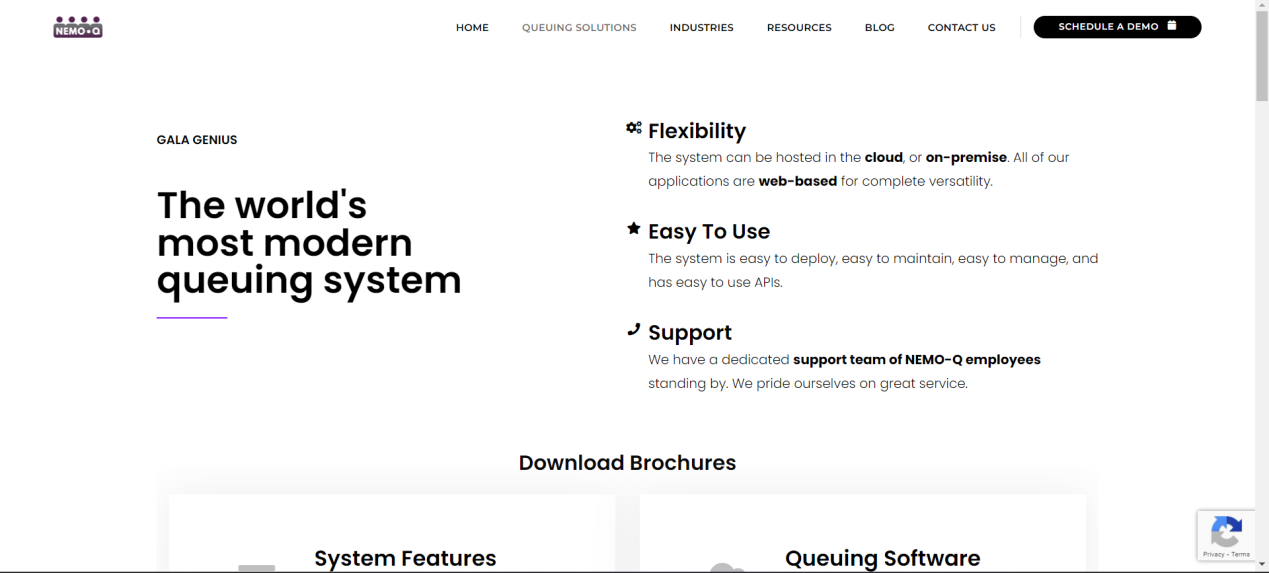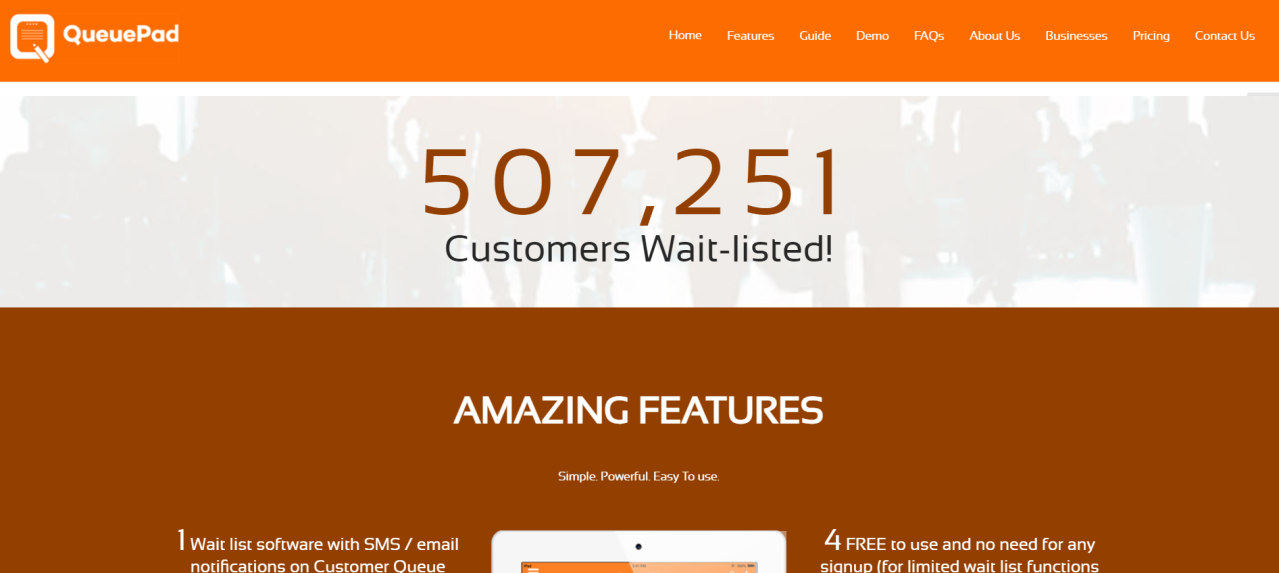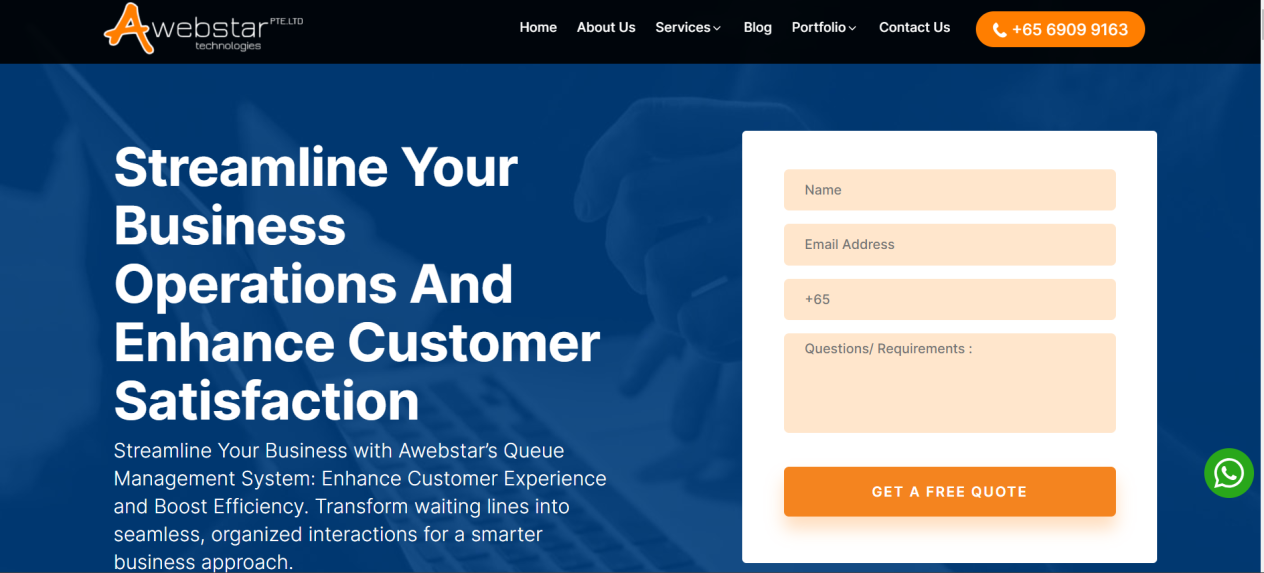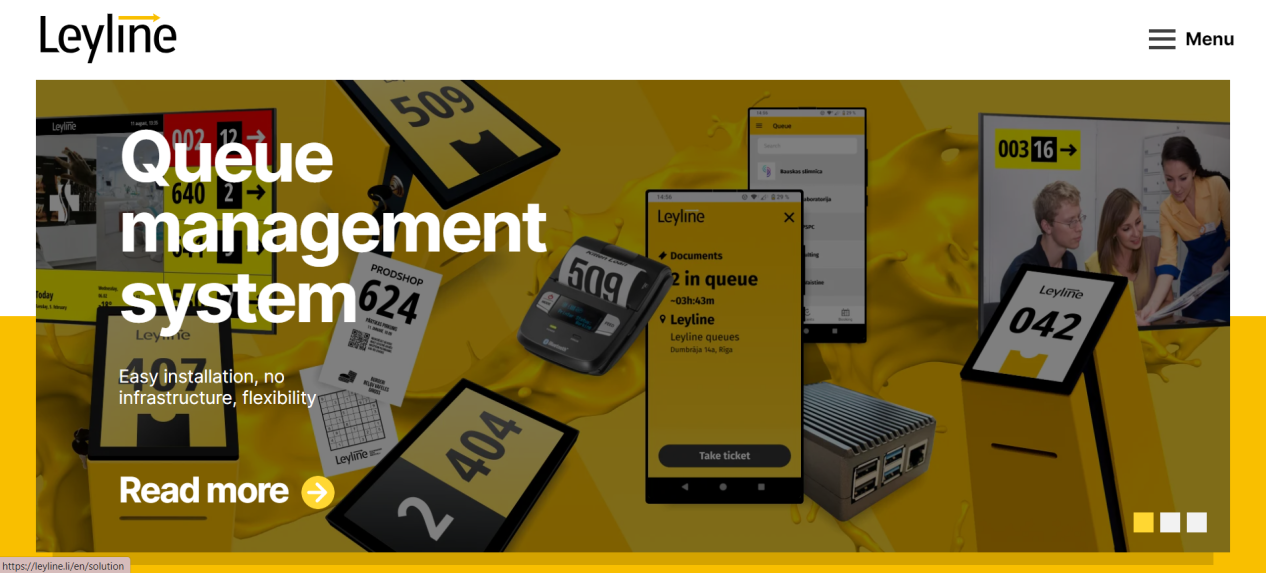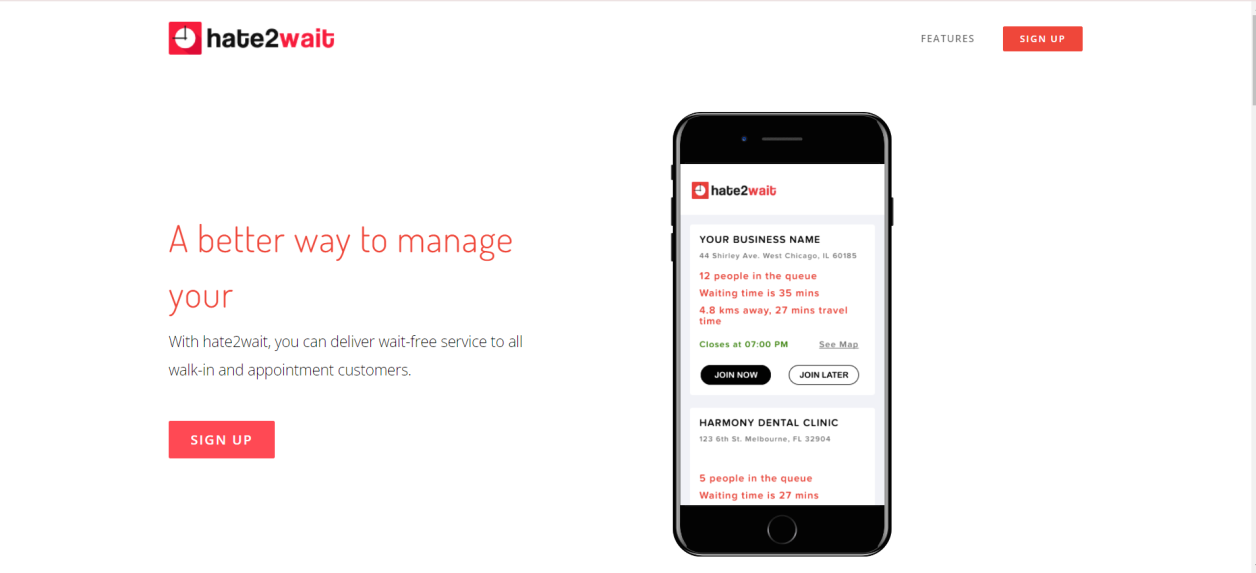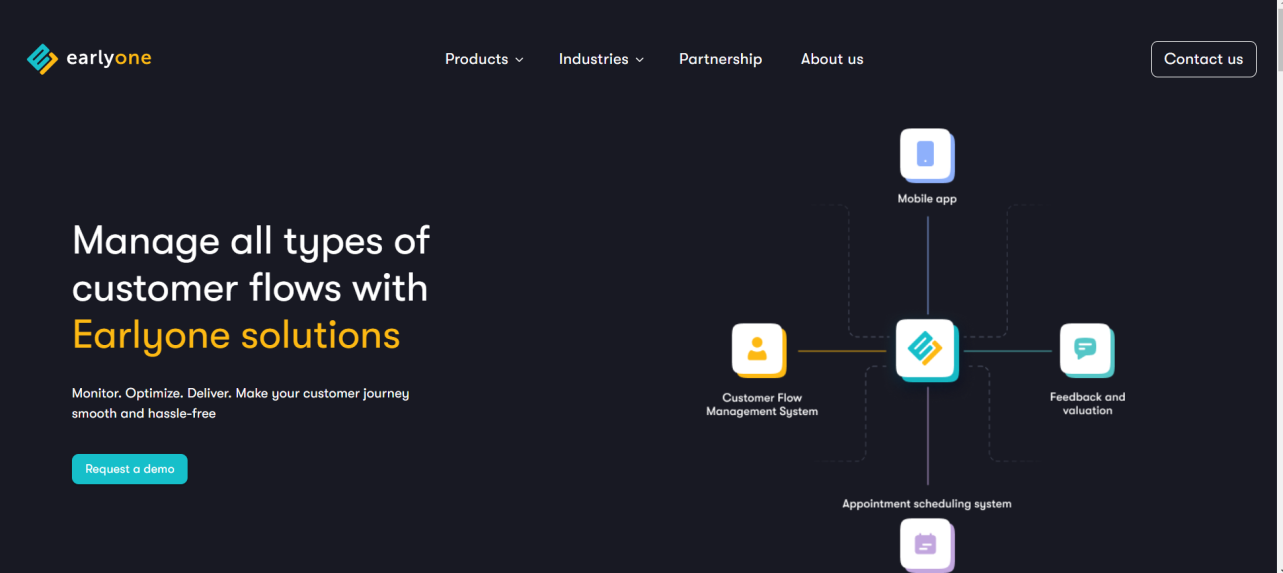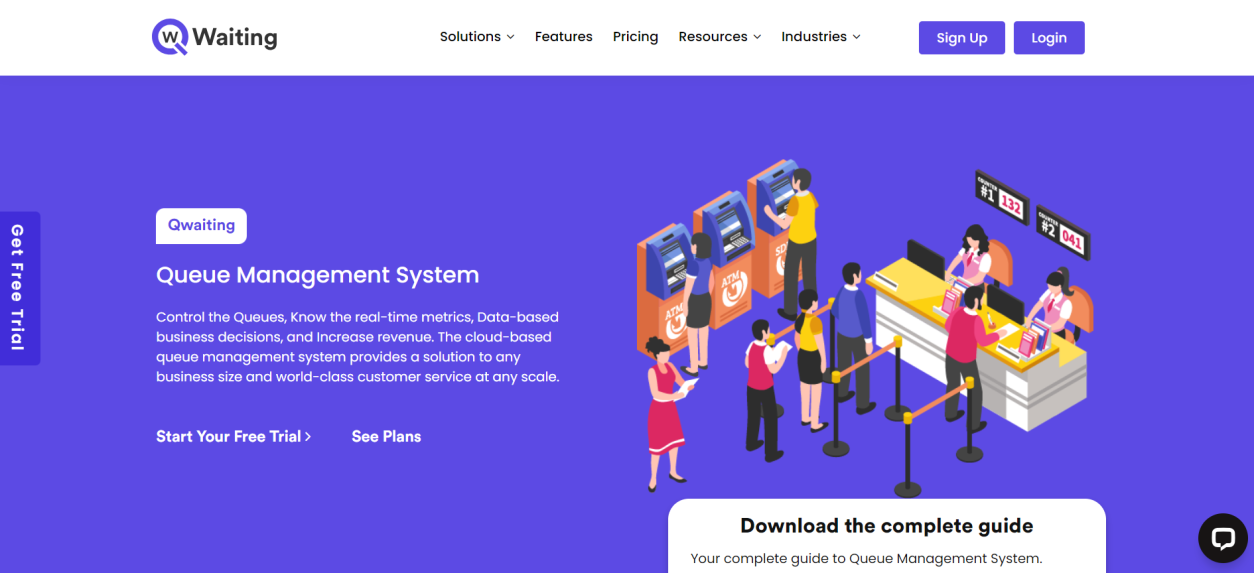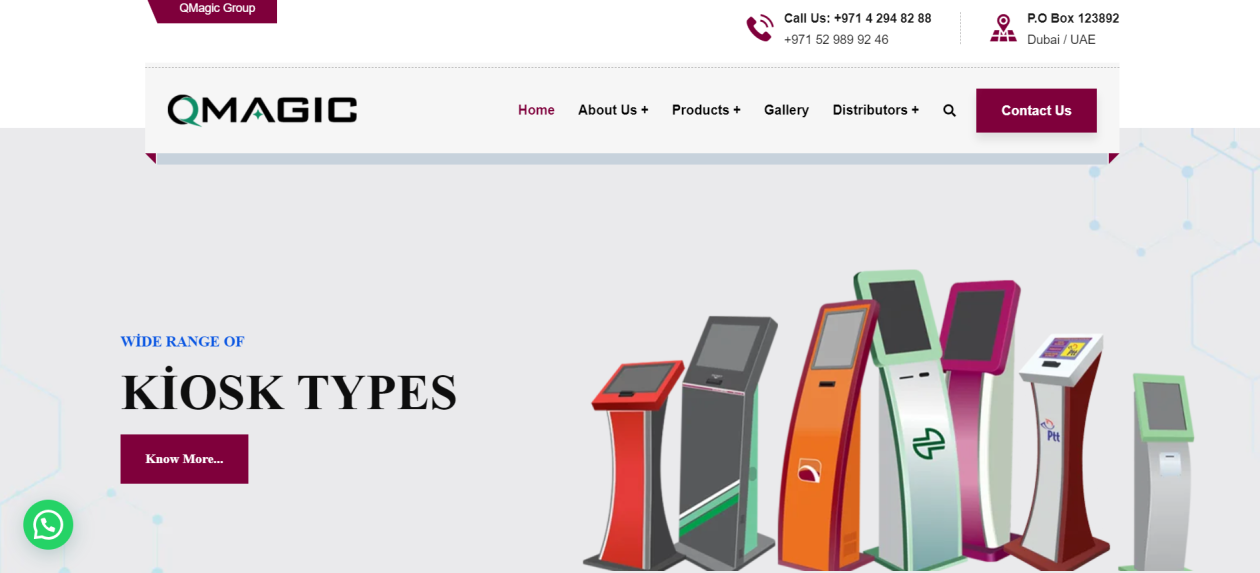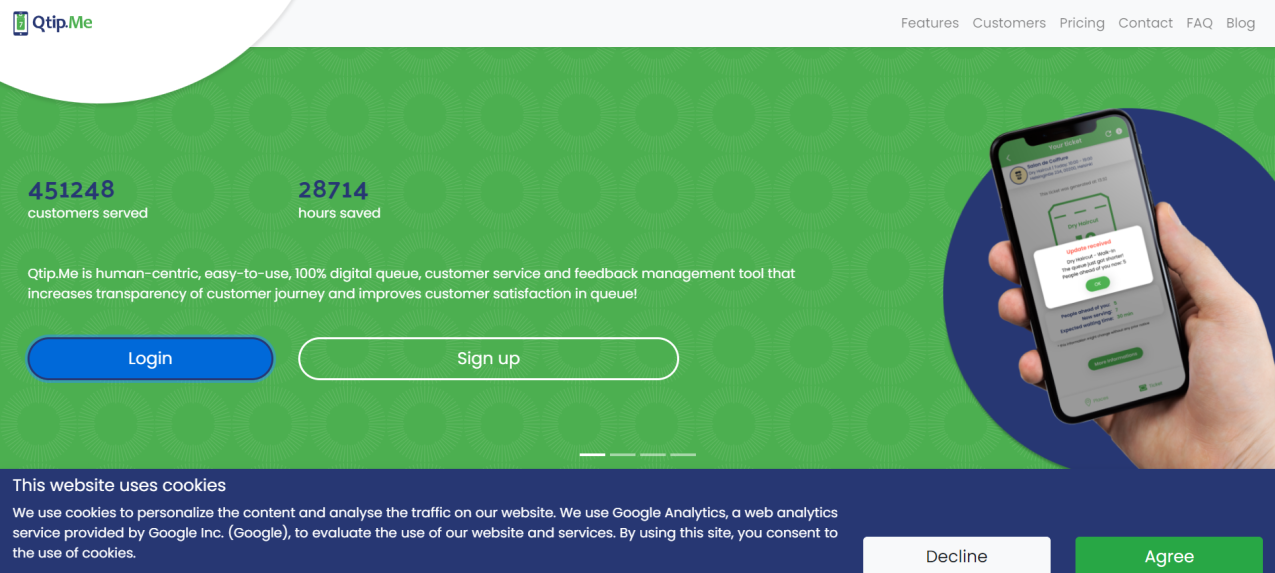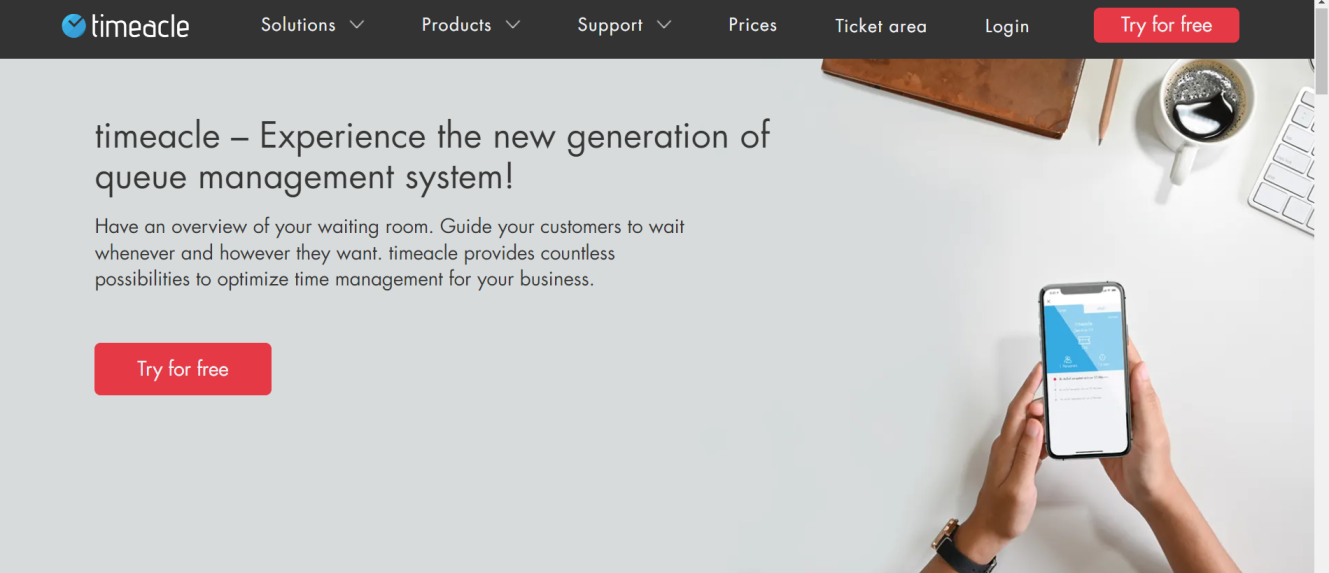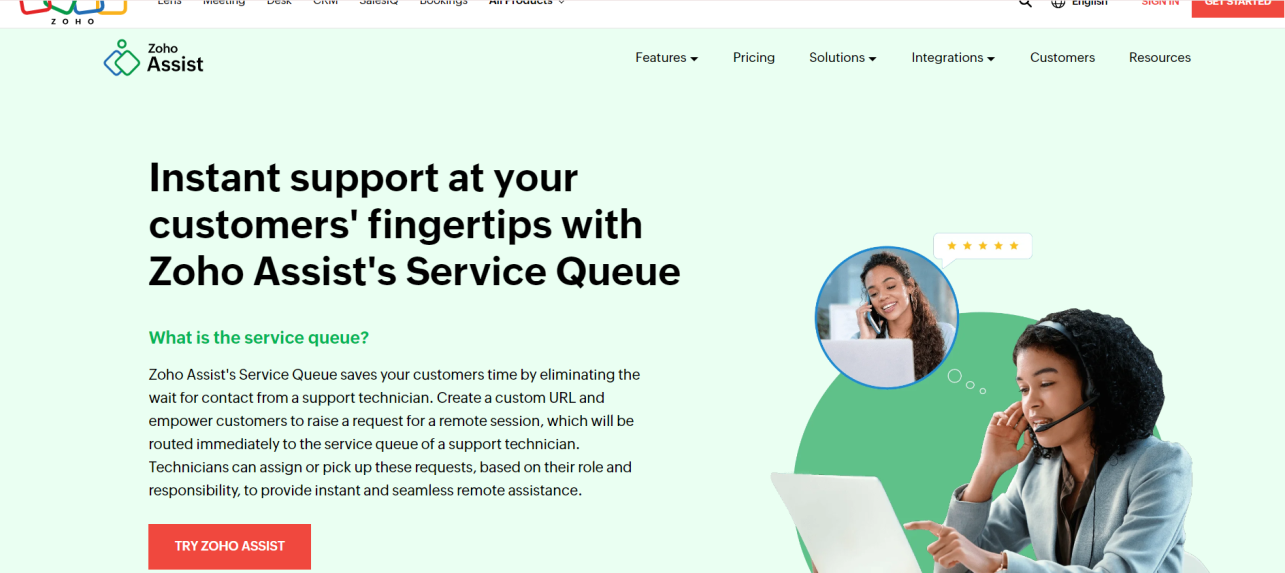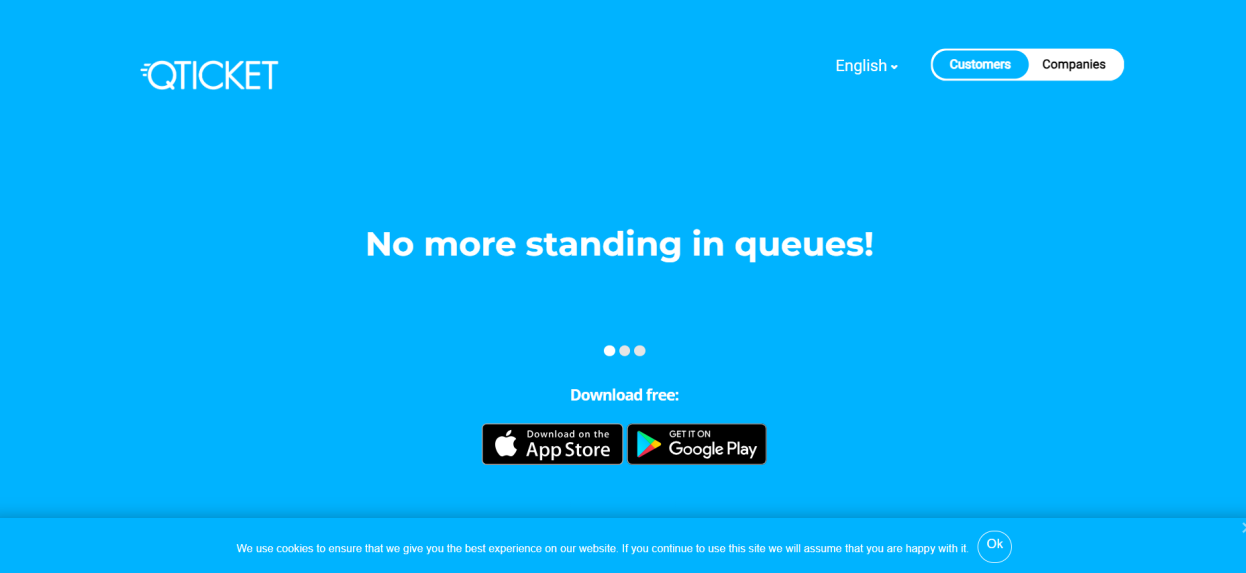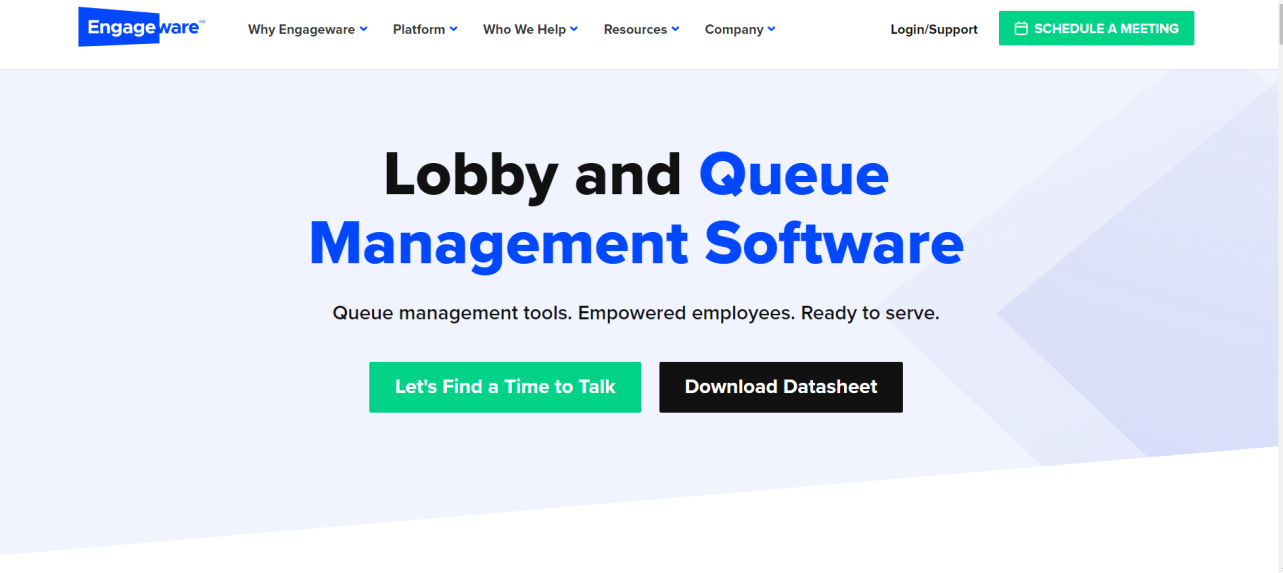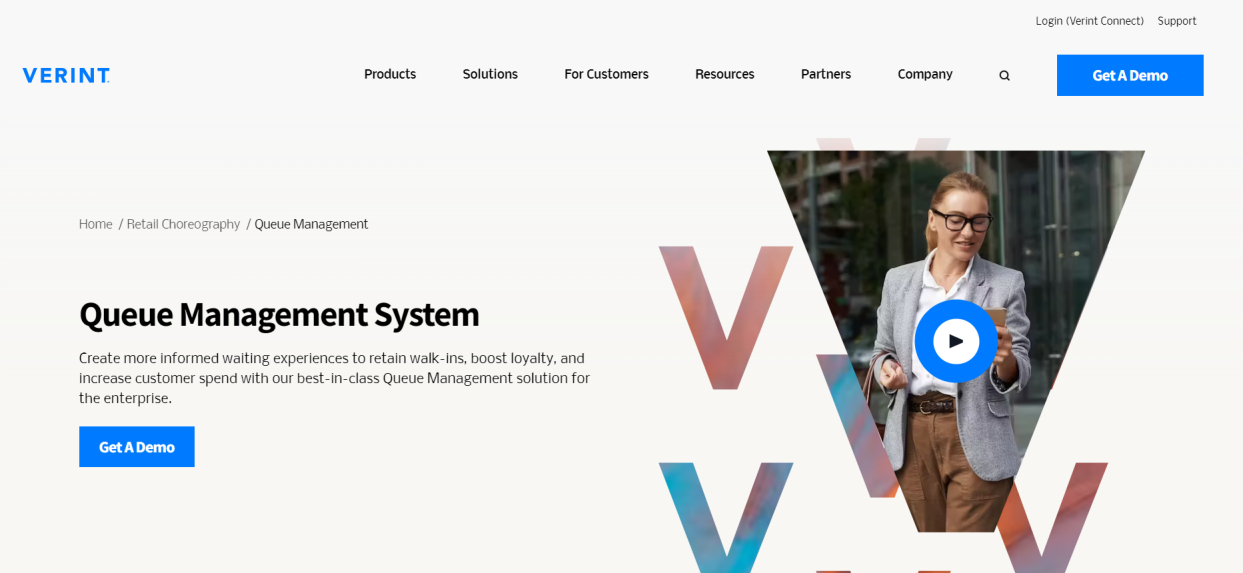Table of Content
Try Vizitor for Free!

Mon, May 13, 2024
Read in 15 minutes
For hospitals, patients are acutely aware of how long they must wait before getting help. Long waiting times in your healthcare facility cause lower patient satisfaction scores, and patients start searching for other healthcare providers.
There are many tools & software to create a better waiting experience for patients and reduce walkaways. If you have walk-in patients, patient queuing software should be one of those tools. Patient queuing software provides digital patient check-in and patient self-check-in options. It also provides analytics about your foot traffic, service times/ wait times, and many more. This software can be referred to as patient check-in software as well but, their essential difference is that patient queuing software helps you to enhance service quality for non-scheduled patient visits or during pre-appointment check-in.
Here, we explore leading queue management solutions that are making significant strides in 2024.
Understanding the Impact of Queue Management in Healthcare
Queue management systems play a crucial role in optimizing patient flow in hospitals. These systems provide numerous benefits, including reducing wait times, enhancing the quality of care, and increasing patient satisfaction. By implementing a hospital queue management system, healthcare facilities can significantly improve their service delivery.
Key Features to Look for in Queue Management Systems
When selecting a queue management system for your healthcare facility, it’s essential to consider various factors that will directly impact the experience of both patients and staff. A well-chosen system can significantly reduce patient wait times, enhance the quality of care, and improve overall operational efficiency. Below are the most important features to look for when evaluating queue management solutions for hospitals:
HIPAA Compliance
The Health Insurance Portability and Accountability Act (HIPAA) is a U.S. federal law that mandates the protection and confidential handling of patient data. Any queue management system used in a healthcare setting must be HIPAA-compliant to ensure that patient information is securely stored and transmitted. These systems should meet stringent data security requirements, including encryption and secure access protocols.
HIPAA compliance isn’t just about safeguarding sensitive data; it’s also about fostering trust between healthcare providers and patients. Ensuring that your queue management system adheres to these privacy standards can help protect your facility from legal risks and enhance patient satisfaction by demonstrating your commitment to protecting their personal health information.
In addition to HIPAA, queue management solutions should consider other regional data protection laws and regulations, such as GDPR in Europe or other country-specific health data privacy laws. A system that complies with global standards helps ensure that healthcare providers can scale their operations internationally while staying compliant with local regulations.
User Experience (UX) and Accessibility
One of the most critical features in any queue management system is the user experience. A system that is easy to navigate, intuitive, and accessible will lead to greater patient satisfaction and more efficient operations. Since patients and visitors may range in age, technical ability, and familiarity with digital interfaces, it’s essential that the system is designed to be user-friendly for everyone, including those who may not be technologically savvy.
A good queue management system should offer multiple patient check-in options, including digital patient check-in (via kiosks, tablets, or mobile apps) and self-service check-in. Self-service check-ins allow patients to enter their information and check in for appointments without needing direct assistance from front-desk staff, which can help reduce bottlenecks during peak hours.
Additionally, multi-language support is an essential feature, especially in diverse communities. A queue management system should cater to a broad range of languages to ensure that all patients feel comfortable navigating the system. Voice-enabled assistance or accessibility features like screen readers for patients with disabilities are becoming increasingly important in providing equitable healthcare.
Analytics and Reporting
Queue management systems generate valuable data that can provide insight into the operational efficiency of a healthcare facility. Analytics and reporting features allow healthcare providers to track essential metrics such as:
Patient wait times: Real-time tracking and historical analysis of how long patients wait before receiving care.
Service times: Insights into how long it takes healthcare professionals to serve each patient, helping identify areas where processes can be optimized.
Foot traffic: Analytics on the number of patients visiting the facility, peak hours, and patient flow patterns. This can help hospitals plan for staffing and resource allocation.
Reports generated from the system can also aid in making informed decisions about staffing, improving patient throughput, and optimizing scheduling. Analytics can highlight inefficiencies in the system, such as bottlenecks in the check-in or treatment processes, which can be addressed to enhance patient care. These insights are invaluable for improving service delivery and ensuring that the hospital runs smoothly.
Notifications and Alerts
Queue management systems should include automated notifications and alerts to keep patients informed about their queue status. This can include SMS, email, or push notifications sent to patients’ smartphones to update them on their position in the queue, expected wait times, or any changes to their appointment status.
For example, if a patient is waiting for their appointment, they can receive alerts when it’s almost their turn, reducing the stress of constant waiting or uncertainty. These notifications can also alert patients about delays, allowing them to better manage their time and reduce frustration. Alerts can be customized based on the needs of your healthcare facility, helping patients stay informed while minimizing disruptions to the workflow.
Additionally, staff members can receive notifications related to patient check-ins, updates, and even emergency situations that may require immediate attention. Notifications ensure better communication between patients, staff, and healthcare providers.
Hardware and Software Integration
A modern queue management system should seamlessly integrate with other essential systems in the healthcare facility. This could include the Electronic Health Record (EHR) system, appointment scheduling software, patient management systems, and billing systems. Integration between these platforms reduces duplication of efforts, minimizes errors, and streamlines administrative workflows.
For instance, when a patient checks in through the queue management system, their information should automatically sync with the EHR, ensuring that doctors and healthcare staff have access to the most up-to-date data. Integration with appointment scheduling software ensures that patients are checked in for the right time slot, helping reduce scheduling conflicts and no-shows.
Some systems also require dedicated hardware, such as self-service kiosks, tablet devices, or digital signage displays. It’s crucial to assess whether the hardware required is compatible with your facility’s existing infrastructure or if additional investments are needed.
Support and Customer Service
Healthcare operations are often around the clock, and any downtime or technical issues with your queue management system can significantly impact patient satisfaction and the smooth functioning of the hospital. As such, it’s essential to choose a provider that offers 24/7 customer support.
The customer service team should be responsive and knowledgeable about the healthcare industry’s specific needs. Whether it’s troubleshooting an issue with the software or providing guidance on how to optimize system settings, having access to reliable support at all hours is crucial to maintaining a seamless patient experience.
In addition, many healthcare facilities require training for their staff members to effectively use the system. A vendor that offers comprehensive training services can help ensure that your team is well-prepared to maximize the benefits of the queue management system.
Customizability and Scalability
Hospitals come in many shapes and sizes, and no two healthcare facilities are identical. As such, the ability to customize the queue management system to meet the specific needs of your hospital is essential. Look for a system that offers flexibility in terms of features, workflows, and user interface.
For example, larger hospitals may need to manage multiple queues simultaneously in different departments, while smaller clinics may only need a single queue for a small team. Customizable options allow the system to scale with your hospital’s growth and adapt to changes in patient volume or service offerings.
Furthermore, as healthcare technology evolves, a scalable system allows you to easily add new features or expand the system to new departments without significant overhauls. Choose a system that can evolve with your needs over time.
Vizitor vs. Other Queue Management Systems – Which One is Best for Hospitals?
Choosing the right queue management system is essential for hospitals to reduce patient wait times, improve efficiency, and enhance the overall patient experience.
With so many options available, how does Vizitor compare to competitors like Qmatic, Wavetec, Qwaiting, and Qless?
Let’s compare the top solutions to see which one is the best fit for hospitals.
Key Features Hospitals Need in a Queue Management System
When evaluating queue management solutions, hospitals should look for:
- Digital Check-in & Self-service – Kiosk & mobile check-in options.
- Real-time Queue Updates – Patients should receive live SMS/app notifications.
- Automated Patient Flow Management – No manual intervention required.
- Integration with Hospital Systems – Works with EHR, appointment scheduling & billing.
- User-Friendly Interface – No need for IT expertise to operate the system.
- Affordable & Scalable – Suitable for both small clinics & large hospitals.
Now, let’s see how Vizitor compares to its competitors.
Vizitor vs. Competitors: A Detailed Comparison
Here’s how Vizitor outperforms other queue management systems in key hospital-friendly features:
| Feature | Vizitor ✅ | Qmatic ❌ | Qwaiting ❌ | Wavetec ❌ | Qless ❌ | Advantech ❌ | Nemo-Q ❌ |
|---|---|---|---|---|---|---|---|
| Digital Check-in (Kiosk & Mobile) | ✅ Yes | ❌ Requires extra hardware | ✅ Yes | ✅ Yes | ✅ Yes | ✅ Yes | ✅ Yes |
| Real-time Queue Updates | ✅ Yes | ❌ Delayed notifications | ❌ Basic alerts | ✅ Yes | ❌ Not automated | ✅ Yes | ✅ Yes |
| Automated Patient Flow Management | ✅ Yes | ❌ Complex setup | ❌ Limited | ✅ Yes | ✅ Yes | ✅ Yes | ❌ No |
| Appointment Scheduling Integration | ✅ Yes | ✅ Yes | ❌ No | ✅ Yes | ✅ Yes | ✅ Yes | ✅ Yes |
| Analytics & Reporting | ✅ Yes | ✅ Yes | ❌ Limited | ✅ Yes | ✅ Yes | ✅ Yes | ✅ Yes |
| Easy to Use (No IT Training Needed) | ✅ Yes | ❌ Complex setup | ✅ Yes | ❌ Requires setup | ✅ Yes | ❌ Some training needed | ✅ Yes |
| Affordable Pricing | ✅ Yes | ❌ Expensive | ❌ Subscription only | ❌ Costly | ❌ Higher cost | ✅ Yes | ✅ Yes |
| Best for Hospitals & Clinics | ✅ Yes | ❌ Mostly for banks | ❌ Limited integrations | ✅ Yes | ❌ Best for DMVs | ✅ Yes | ✅ Yes |
Want a queue system that works best for hospitals?
Get a Free Demo of Vizitor Now
Why Vizitor is the Best Choice for Hospitals
Unlike Qmatic, Vizitor does not require extra hardware or a complicated setup.
Unlike Qwaiting & Nemo-Q, Vizitor offers real-time queue updates and advanced analytics.
Unlike Wavetec & Qless, Vizitor is affordable, easy to use, and designed for hospitals.
Hospitals using Vizitor report:
30% reduction in patient wait times
Improved staff efficiency & reduced workload
Higher patient satisfaction & smoother operations
💬 What Our Clients Say:
“Since we started using Vizitor, patient check-in times have decreased by 30%, and our staff workload has reduced significantly!"

Dr Shashank
AngelLife IVF
Want the same results for your hospital?
Get a Free Demo of Vizitor Now
See the Difference for Yourself – Try Vizitor for Free!
Hospitals are switching to Vizitor for a better queue experience, improved efficiency, and real-time patient flow management.
Trusted by leading healthcare providers.
Easy to set up, no complex training required!
Don’t fall behind – upgrade your queue system today!
Start Your Free Trial Now
Top Queue Management Solutions
#1. Vizitor:
Renowned for its user-friendly interface and comprehensive feature set, Vizitor is a favorite among many healthcare organizations. It’s known for its digital patient check-in, analytics, and customizable service options. Vizitor’s Queue Management System (QMS) is designed to streamline customer flow, optimize processes, and reduce wait times, creating a smooth and efficient queuing experience. By integrating features like token generation, real-time notifications, and automated scheduling, Vizitor’s QMS ensures a seamless visitor management process.
Unlocking efficiency with Vizitor’s QMS enhances the customer experience across retail, banking, healthcare, government, and education, ensuring seamless service.
- No Long Queues
- Department Management
- Real-time Updates
- Visitor Activity Tracking
- Seamless Transfers
- Enhanced Visitor Satisfaction
Website: https://www.vizitorapp.com/smart-queue-management-system/
#2. Aurionpro:
Aurionpro is a comprehensive queue management solution that caters to the unique needs of different businesses. With a focus on efficiency and customer satisfaction, Aurionpro offers a range of features to streamline queuing processes.
website: https://www.aurionpro.com/ace/queue-management-system/
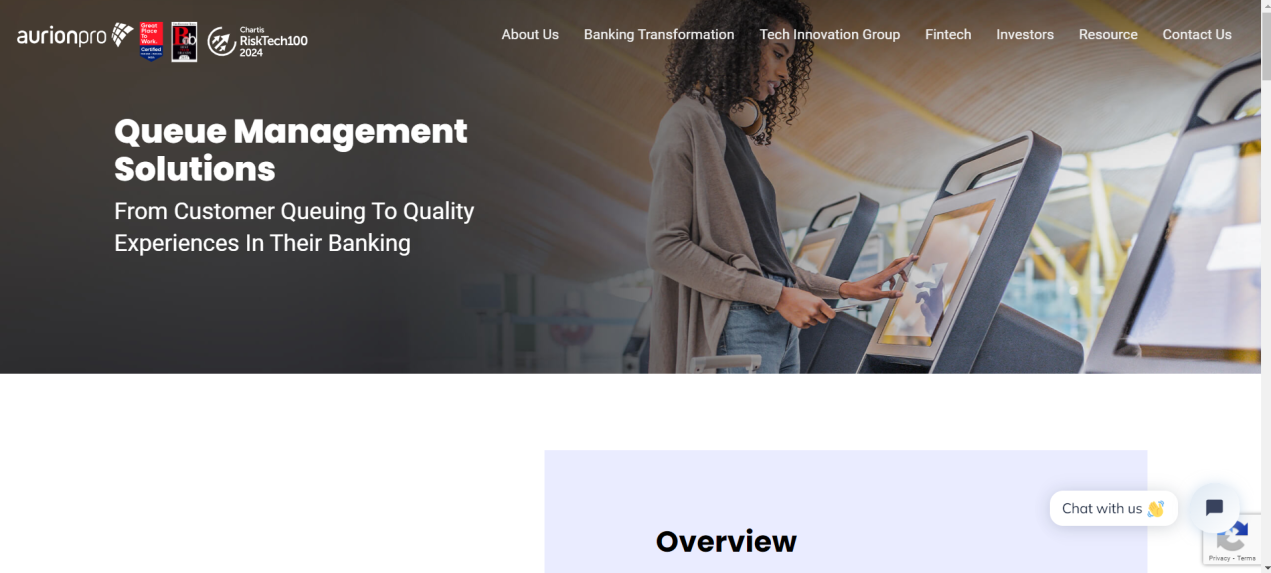
#3.Advantech:
Known for its intelligent queueing system, Advantech integrates seamlessly with other healthcare systems and offers insightful reports on visitor volumes and wait times.
#4. SimpleQ:
A straightforward and effective solution, SimpleQ is ideal for healthcare providers looking for an easy-to-implement queuing system.
#5.Qless:
Known for its appointment scheduling features and multiple check-in options, Qless is a popular choice in the USA, especially for DMVs and healthcare organizations.
Website: https://qless.com/
#6.QueueTix (QTix):
This app-based solution is an efficient alternative to traditional take-a-number systems, offering mobile and tablet integration for seamless queue management.
Website: https://queuetix.com/
#7. Qtrac by Lavi Industries:
Ideal for hospitals with complex customer flows, Qtrac offers both hardware and software solutions for effective visitor management.
Website: https://qtrac.com/
#8.Wavetec:
Specializing in Patient Journey Management, Wavetec provides a comprehensive system for appointment setting, queue management, and post-visit feedback.
Website: https://www.wavetec.com/solutions/queue-management-system/
#9.Qnomy:
A versatile solution, Qnomy is well-suited for various healthcare settings, offering efficient queue management and patient journey tracking.
Website: https://www.qnomy.com/
#10. Nemo-Q:
This solution is renowned for its user-friendly interface and efficient management of patient flows in healthcare settings.
Website: https://www.nemo-q.com/queuing-management/
#11. QueuePad:
QueuePad stands out for its simplicity and effectiveness in managing patient queues, particularly in smaller clinics.
Website: https://www.queuepad.com/
#12. Awebstar Queue Management System:
Awebstar is known for its comprehensive features and scalability, catering to healthcare facilities of all sizes.
Website: https://awebstar.com.sg/queue-management-system.html
#13. Q-flow:
Q-flow offers a unique blend of queue management and patient experience enhancement, making it a popular choice for modern healthcare providers.
Website: https://www.acftechnologies.com/q-flow
#14. Leyline:
Leyline provides a robust and user-friendly queue management solution, focusing on improving patient wait times and service quality.
Website: https://leyline.li/
#15. Hate2wait:
As the name suggests, this solution aims to minimize waiting times, offering a streamlined and efficient queuing experience.
Website: https://hate2wait.io/
#16. Earlyone:
This system is designed to reduce patient wait times and improve service efficiency through advanced queue management features.
Website: https://earlyone.com/
#17. Qwaiting:
A strong presence in the Asian market, Qwaiting offers a digital engagement system that enhances the patient journey with various check-in options and cloud-based access.
Website: https://qwaiting.com/solutions/queue-management-solution
#18. Qmagic:
Known for its innovative approach, Qmagic offers a unique queuing experience with a focus on digital integration and patient satisfaction.
Website: https://qmagic.com/
#19. Qtip:
Qtip stands out for its simplicity and efficiency, providing essential queuing functionalities for smaller healthcare facilities.
Website: https://qtip.me/
#20. Timeacle:
Timeacle is popular for its versatility and scalability, offering solutions that cater to both small clinics and large hospitals.
Website: https://timeacle.com/en/
#21. Zoho:
Zoho Assist’s Service Queue minimizes your customers’ wait time by removing the need to wait for contact from a support technician.
website: https://www.zoho.com/assist/service-queue.html
#22. Qticket:
Qticket is a user-friendly queue management solution that focuses on simplicity and effectiveness. It is particularly well-suited for various industries, providing a seamless queuing experience for both customers and service providers.
website: https://www.qticketapp.com/
#23. Engageware:
Engageware is a versatile queue management system designed to improve customer engagement and optimize service delivery. With its focus on digital solutions, Engageware offers a modern approach to queue management for various industries.
website: https://engageware.com/appointment-scheduling/queue-management/
#24. Verint:
Verint provides an advanced queue management system designed to enhance operational efficiency and customer satisfaction. Its digital solutions contribute to a seamless queuing experience, making it a valuable asset for diverse service-oriented organizations.
website: https://www.verint.com/queue-management/
#25. Qmatic:
A pioneer in queue management, Qmatic offers sophisticated systems and custom hardware, ideal for complex healthcare environments.
Website: https://www.qmatic.com/solutions/queue-management/
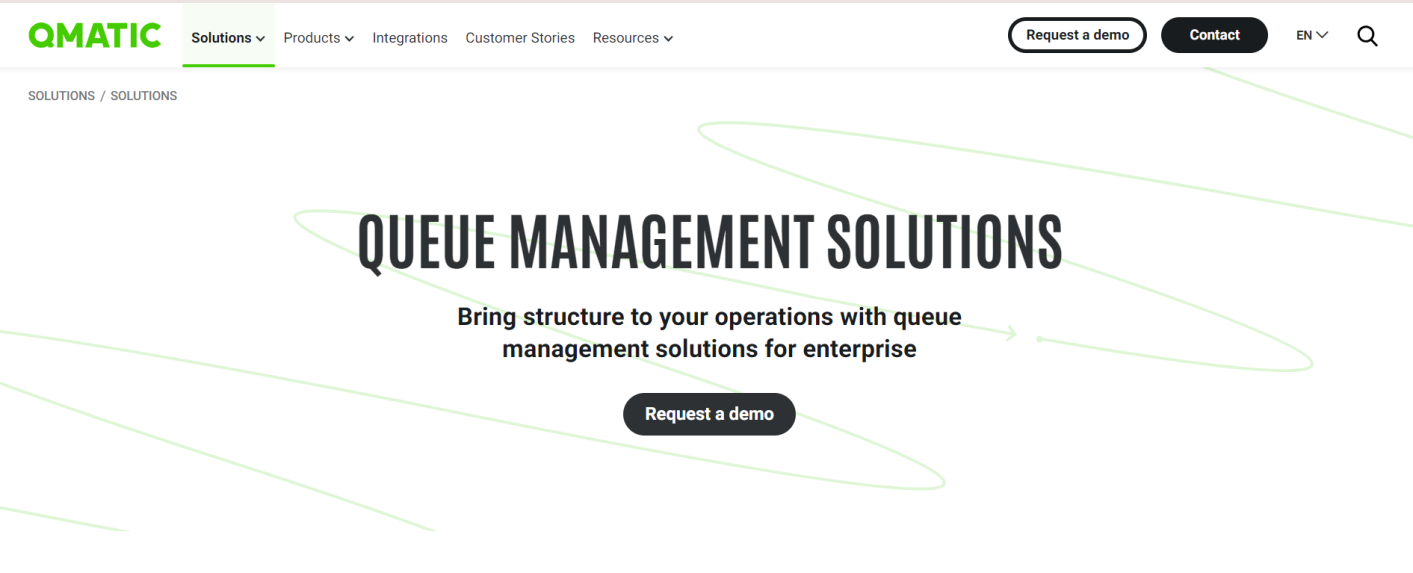
[](/demo)Integrating Queue Management with Patient Care
Recent studies have shown that implementing an effective queue management system can reduce patient waiting times by up to 30%. This not only improves patient satisfaction but also enhances the overall efficiency of healthcare providers.
How to Choose the Right Queue Management System for Your Hospital
Selecting the right queue management system depends on the size of your healthcare facility, patient volume, and workflow complexity.
Here’s how to evaluate your options:
Step 1: Assess Your Hospital’s Needs
- High Patient Volume? → Prioritize systems like Qmatic or Wavetec with scalable queue management and multi-location support.
- Focus on Reducing Walkaways? → Look for real-time SMS updates & mobile queueing solutions like Qless.
- Small to Medium-Sized Hospital? → Choose easy-to-deploy solutions like Vizitor or Nemo-Q with touchless check-in and patient flow monitoring.
Step 2: Check Integration Capabilities
Ensure the system integrates with your existing hospital systems, such as:
- Appointment Scheduling Software
- Electronic Health Records (EHR)
- Digital Signage Displays
Step 3: Prioritize User Experience
A system with a clean, user-friendly interface reduces patient frustration.
Look for:
- Touchless Check-in Options
- Mobile App Notifications
- Multi-language Support
Step 4: Evaluate Customer Support
Hospitals operate 24/7, so timely technical support is crucial.
Ensure the provider offers:
- Round-the-clock assistance
- On-site setup (if required)
Step 5: Request a Demo
Most providers offer free demos.
Schedule demos with 2-3 shortlisted vendors to test the system’s usability and ensure it meets your operational requirements.
The Future of Queue Management in Healthcare
The healthcare industry is rapidly digitizing, and queue management is evolving beyond simple number systems.
Expect AI-driven solutions capable of:
- Predicting patient flow
- Automating staff allocation based on peak hours
- Reducing bottlenecks in real-time
Hospitals adopting smart queue systems will gain a competitive edge in patient satisfaction and operational efficiency.
Conclusion
Implementing a modern hospital queue management system is no longer optional—it’s a necessity.
It reduces wait times, improves patient satisfaction, and streamlines hospital operations.
For hospitals seeking an easy-to-use, efficient solution, Vizitor’s Queue Management System is designed to simplify patient check-ins, manage queues, and enhance overall patient experience.
Book a Demo Now!
See how Vizitor can transform your hospital’s queue system.
Book Your Free Demo Here
FAQs About Queue Management Systems in Hospitals
1. What is a Hospital Queue Management System?
A hospital queue system organizes patient flow, reducing wait times and improving efficiency.
2. How Does a Queue Management System Work in a Hospital?
Patients check in via kiosk, mobile app, or receptionist. They receive a ticket or SMS and are called in sequence.
3. Why is Queue Management Important in Healthcare?
It minimizes waiting times, improves patient satisfaction, and enhances hospital staff efficiency.
4. Which Queue System is Best for Small Clinics?
Solutions like Vizitor or Nemo-Q are cost-effective and easy to deploy for small hospitals and clinics.
Watch Our Quick Explainer Video!
Discover how Vizitor can improve your patient flow in just 60 seconds.
Watch the Video
Final Note:
A hospital’s success is closely tied to patient satisfaction.
A robust queue management system is the first step toward ensuring every patient feels cared for—right from the waiting room.
Ready to transform patient experiences?
Try Vizitor Today.






